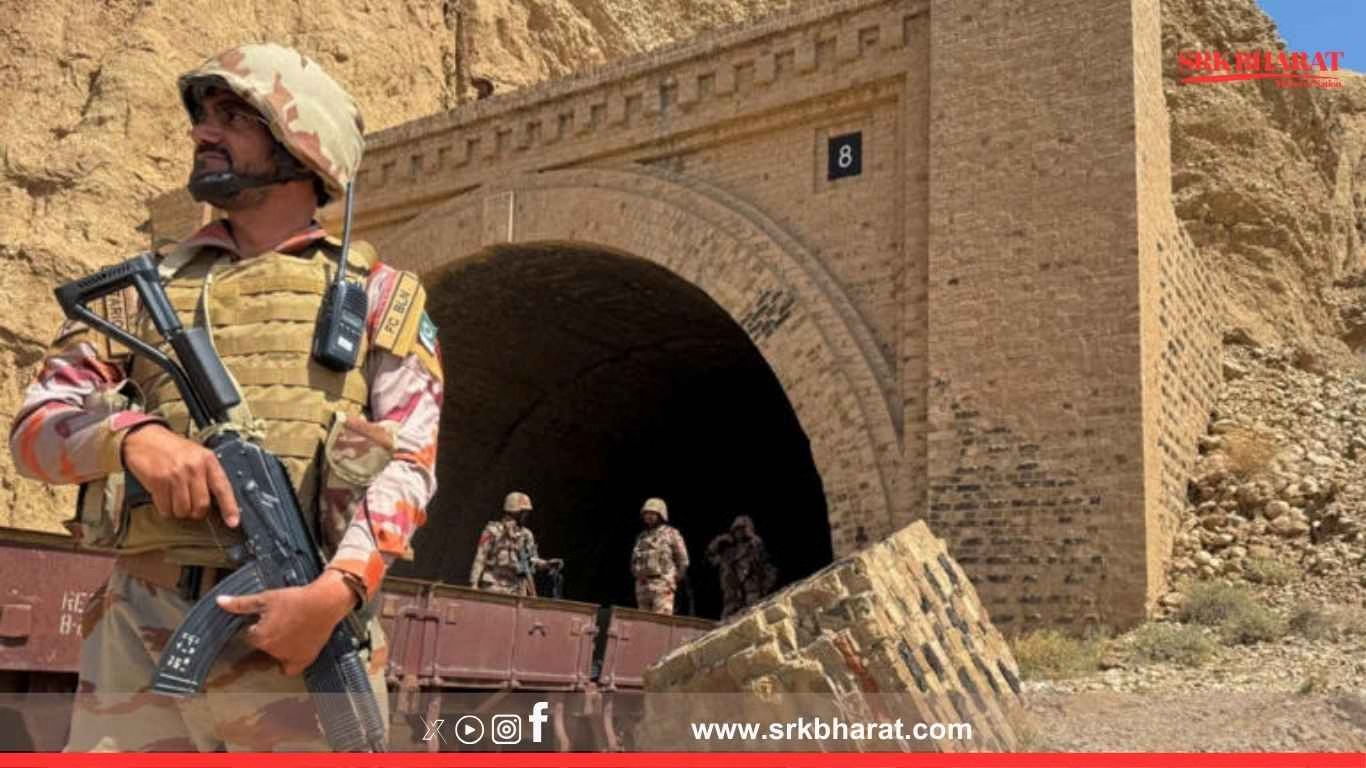In a major escalation of tensions in Pakistan’s restive Balochistan province, separatist militant groups under the Baloch Liberation Army (BLA) have claimed responsibility for a coordinated offensive named Operation ‘BAAM’. The operation, reportedly executed within 24 hours across multiple regions, targeted Pakistani security forces, paramilitary checkpoints, and infrastructure assets, marking one of the deadliest waves of attacks in recent times.
What is Operation ‘BAAM’?
The Baloch separatist command announced that Operation BAAM, meaning ‘lightning’ in the local dialect, was conceptualised as a rapid, simultaneous offensive intended to paralyse army movements, sabotage resource extractions, and spread psychological fear across garrisons.
Key features of the offensive include:
- Simultaneous attacks on army posts, Frontier Corps camps, and convoys.
- Use of IEDs and RPGs targeting patrol units and vehicles.
- Urban guerrilla assaults in Quetta, Panjgur, and Turbat targeting military offices.
- Disruption of key roads and supply lines to Gwadar port, hampering trade movements.
Timeline of Major Attacks Under Operation ‘BAAM’
| Region | Nature of Attack | Reported Casualties |
|---|---|---|
| Panjgur | RPG attack on FC camp | 7 soldiers injured |
| Turbat | IED blast on convoy | 3 soldiers killed, 2 injured |
| Kech | Small arms ambush | 4 soldiers killed |
| Quetta | Grenade attack at FC checkpoint | 1 civilian killed, 5 injured |
| Gwadar road | Road blockade, vehicles burnt | No confirmed casualties |
Why did the Baloch separatists launch this offensive?
The Baloch separatist movement has been rooted in decades-long resentment against Islamabad’s policies. Key triggers for Operation BAAM include:
- Resource Exploitation: Locals claim minerals, gas, and port revenues from Balochistan have enriched Punjab and Sindh provinces while Baloch communities remain impoverished.
- Forced Disappearances: Human rights organisations have reported mass abductions of activists, students, and suspected militants, fuelling anger and militant recruitment.
- Chinese Investments: The China-Pakistan Economic Corridor (CPEC) has intensified local fears of demographic dilution, land acquisition, and joblessness.
- Recent Military Operations: A fresh counterinsurgency operation launched by the Pakistan Army in southern Balochistan districts reportedly displaced hundreds, igniting retaliation.
Pakistan Army’s Response
The Inter-Services Public Relations (ISPR) has neither confirmed the scale of casualties nor acknowledged specific incidents but stated that “multiple terrorist attacks were repulsed, and security forces remain in control of the situation.”
Official statements claimed:
- Intensive air and ground search operations are underway in Kech and Panjgur.
- Checkpoints have been reinforced with fresh troop deployments.
- Counterterrorism raids continue to arrest suspected militants and supporters.
However, ground reports indicate heightened restrictions, partial communication shutdowns, and curfews in sensitive areas, triggering concerns about civilian safety.
Baloch Insurgency: An Overview
The Baloch insurgency, ongoing since 1948 with multiple phases, has regained momentum over the last two decades. The BLA, Baloch Republican Army (BRA), and Baloch Raji Aajoi Sangar (BRAS) have periodically united to launch joint operations, often targeting:
- Gas pipelines
- Security convoys
- Chinese interests linked to CPEC
Recent attacks are indicative of tactical sophistication, with intelligence coordination, drone reconnaissance, and hit-and-run strategies making counterinsurgency difficult.
Regional Impact of Operation BAAM
1. Security Implications
- Pakistan Army stretched thin: Frequent attacks increase military fatigue, requiring diversion of resources from other borders, notably Afghanistan and India.
- Potential Chinese concerns: Gwadar port’s operational safety remains a strategic concern for Beijing.
2. Economic Disruption
- Trade movements via Gwadar and Makran coastal highway have slowed.
- Investors are reportedly seeking clarity on security guarantees before fresh projects.
3. Geopolitical Repercussions
Pakistan has often accused foreign intelligence agencies of fuelling Baloch insurgency. Operation BAAM’s scale is likely to intensify diplomatic tensions as Islamabad may seek international cooperation to block external funding routes for the separatists.
Expert Analysis
Security experts suggest Operation BAAM highlights the failure of purely military solutions to the Baloch issue, recommending:
- Political dialogue with moderate Baloch nationalist factions.
- Socio-economic development with local representation in resource projects.
- Addressing enforced disappearance allegations through independent inquiries.
Voices from Ground
Local residents, speaking under anonymity, expressed fear over the sudden intensification of attacks and military patrols.
“The children cannot go to school. There is tension everywhere. We want peace, but there is no trust left between the people and the army,” said a teacher from Turbat.
Global Watch: Why should India and regional observers track this?
- India’s connectivity aspirations: Balochistan forms a key alternative route for Indian trade if regional peace is achieved.
- China’s footprint: Increased instability threatens Chinese investments, recalibrating South Asian strategic dynamics.
- Human rights concerns: Reports of civilian casualties and displacements are drawing global rights groups’ attention, potentially impacting Pakistan’s international image.
Future Outlook
Operation BAAM’s scale indicates a tactical shift from sporadic ambushes to coordinated multi-district offensives, potentially ushering a new phase of insurgency in Balochistan. Whether Pakistan responds with dialogue or intensifies force remains to be seen.
Disclaimer
This article is for general informational purposes only. It does not constitute professional security analysis or policy advice. The ground situation in Balochistan remains fluid, and readers are advised to follow official government and reputable international agency updates for real-time developments.











